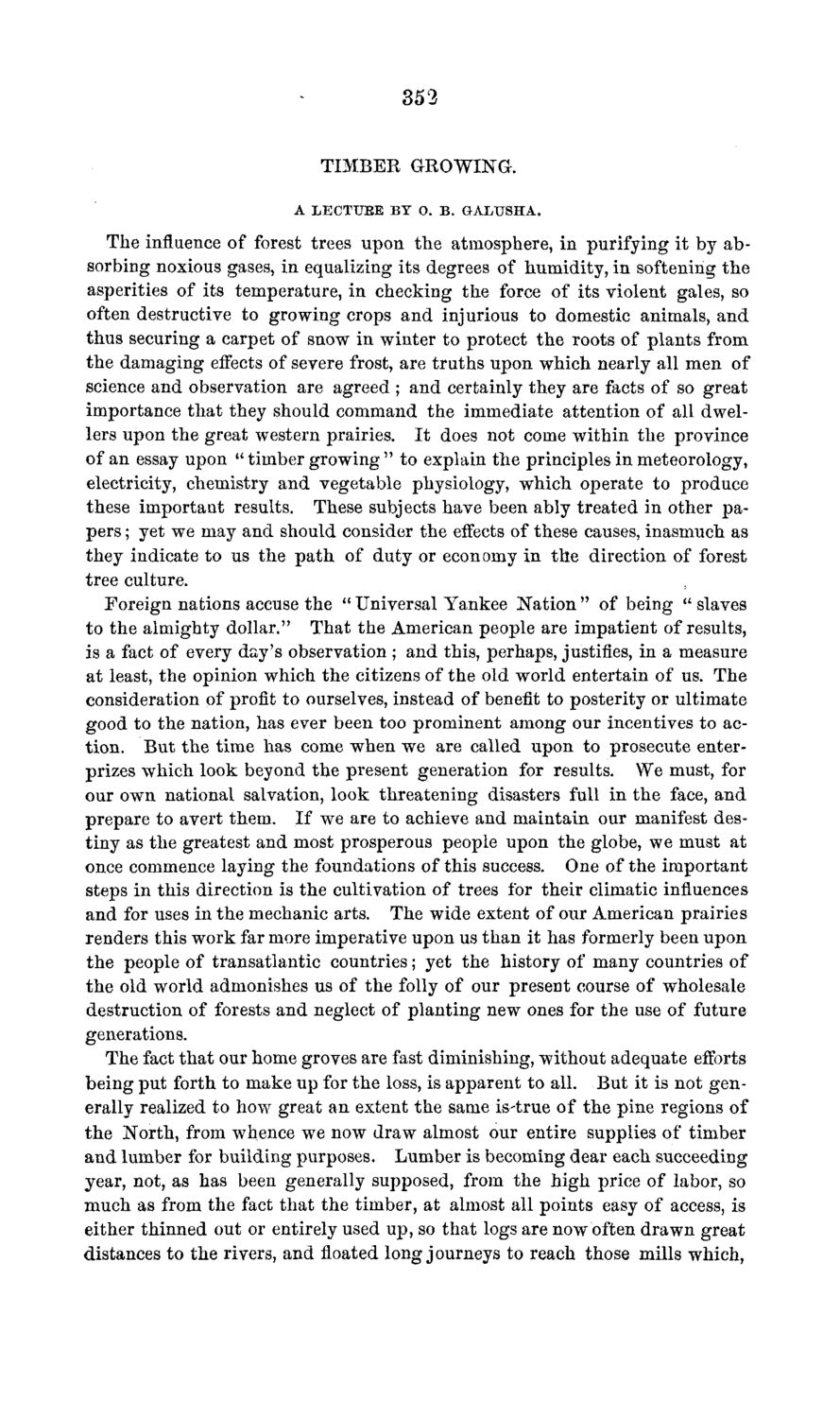| |
| |
Caption: Board of Trustees Minutes - 1869
This is a reduced-resolution page image for fast online browsing.

EXTRACTED TEXT FROM PAGE:
353 TIMBER GROWING. A L E C T U B E BY O. B . GALTJSHA. The influence of forest trees upon the atmosphere, in purifying it by absorbing noxious gases, in equalizing its degrees of humidity, in softening the asperities of its temperature, in checking the force of its violent gales, so often destructive to growing crops and injurious to domestic animals, and thus securing a carpet of snow in winter to protect the roots of plants from the damaging effects of severe frost, are truths upon which nearly all men of science and observation are agreed ; and certainly they are facts of so great importance that they should command the immediate attention of all dwellers upon the great western prairies. It does not come within the province of an essay upon "timber growing " to explain the principles in meteorology, electricity, chemistry and vegetable physiology, which operate to produce these important results. These subjects have been ably treated in other papers ; yet we may and should consider the effects of these causes, inasmuch as they indicate to us the path of duty or economy in the direction of forest tree culture. Foreign nations accuse the " Universal Yankee Nation " of being " slaves to the almighty dollar." That the American people are impatient of results, is a fact of every day's observation ; and this, perhaps, justifies, in a measure at least, the opinion which the citizens of the old world entertain of us. The consideration of profit to ourselves, instead of benefit to posterity or ultimate good to the nation, has ever been too prominent among our incentives to action. But the time has come when we are called upon to prosecute enterprizes which look beyond the present generation for results. We must, for our own national salvation, look threatening disasters full in the face, and prepare to avert them. If we are to achieve and maintain our manifest destiny as the greatest and most prosperous people upon the globe, we must at once commence laying the foundations of this success. One of the important steps in this direction is the cultivation of trees for their climatic influences and for uses in the mechanic arts. The wide extent of our American prairies renders this work far more imperative upon us than it has formerly been upon the people of transatlantic countries; yet the history of many countries of the old world admonishes us of the folly of our present course of wholesale destruction of forests and neglect of planting new ones for the use of future generations. The fact that our home groves are fast diminishing, without adequate efforts being put forth to make up for the loss, is apparent to all. But it is not generally realized to how great an extent the same is-true of the pine regions of the North, from whence we now draw almost our entire supplies of timber and lumber for building purposes. Lumber is becoming dear each succeeding year, not, as has been generally supposed, from the high price of labor, so much as from the fact that the timber, at almost all points easy of access, is either thinned out or entirely used up, so that logs are now often drawn great distances to the rivers, and floated long journeys to reach those mills which,
| |